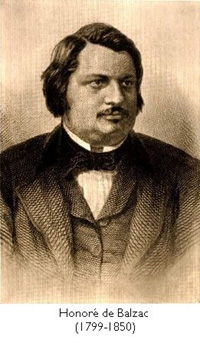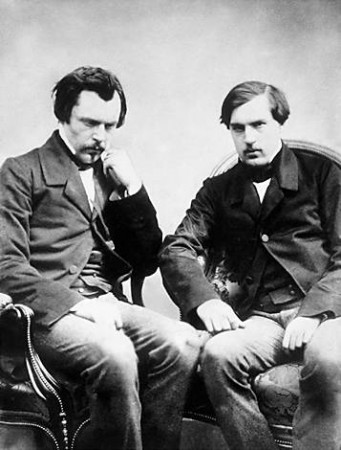Concerns about the Impact of Haussmann's Changes on Parisian life
Rapid changes in the physical or social environment are often disconcerting and leave individuals feeling disiturbed. These feelings were present in Paris even before the redrawing of Paris by Haussmann, as evidence in this passage from a novel written by Honoré de Balzac in 1846 or 1847.
 |
Let me tell you what threatens everything in Paris: this abrupt efflorescence of bricks and slate, this profusion of building timbers and ashlar, this exuberant vegetation of casement windows, shutters, and portes cochères. . . . A craze for building reigns like an epidemic: the tide of houses rises as we look, overflowing the barrières, invading the banlieue and making its first assault on the outworks of the city’s fortifications . . . Can we stop this fever, this mania for piling stone on stone?
|
|---|
In this diary entry produced by Julien and Edmund Goncourt in 1860, one can see the same distaste for the kind of rapid change engulfing the French capital.
| I go to the
evenings to the Eldorado, a big café-concert on the Boulevard de
Strasbourg, a room with columns and very luxurious decor and paintings,
something rather like Kroll’s in Berlin. T.J. Clark, notes that when Edmond Goncourt prepared this passage for publication in 1891, he changed the reference from “London” to “America.” The Painting of Modern Life: Paris in the Art of Manet and His Followers (New York: Alfred Knopf, 1984), pp.33-34. |
Photograph by Nadar of Edmond (left) and Jules Goncourt |
|---|
